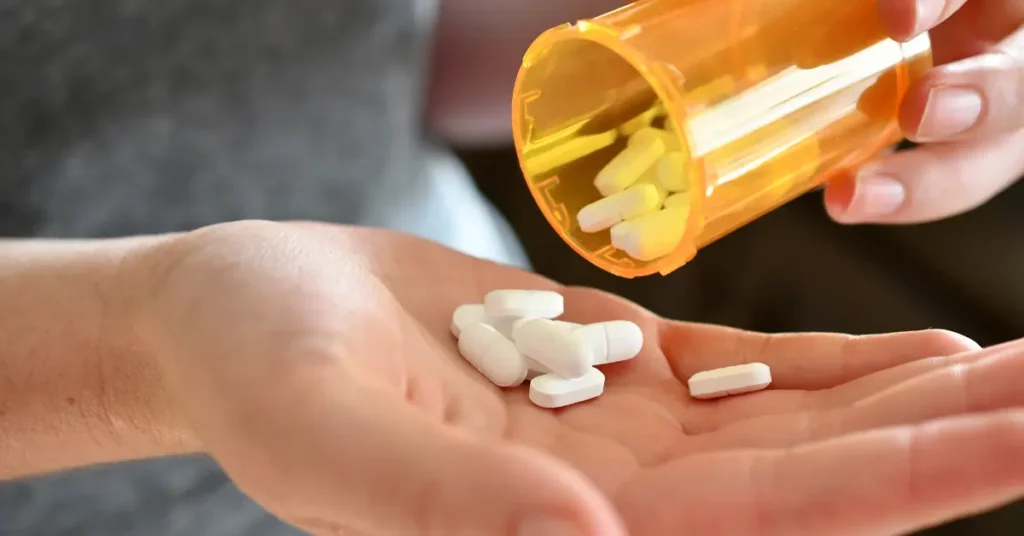Opioid use can lead to death due to the effects of opioids on the part of the brain which regulates breathing or respiratory depression, leading to high mortality. According to WHO[1], approximately 115,000 people died of opioid overdose in 2017, and more than 70% of these deaths are related to opioids, with more than 30% of those deaths caused by overdose. In the United States of America (USA), the number of people dying from opioid overdose rose up to 120% between 2010 and 2018. An opioid overdose can happen if a person has overloaded their body with medications or illicit drugs, which may lead to worst cases like death. Let us look at the top 4 causes of how opioid overdose leads to death.
1. Lack of oxygen to the brain
The most crucial risk of an opioid overdose is the lack of oxygen. All opioid drugs at high doses decrease brain oxygenation due to respiratory depression. The opioid epidemic has led to the creation of Toxic Brain Injury. Toxic Brain Injury has multiple effects on the brain. Brain damage caused by the use of drugs could include disruption of nutrients needed by brain tissue, direct damage, injury, and death of brain cells. When too many opioids enter the brain, oxygen flow becomes limited, and permanent brain damage can occur within a very short span of time, like four minutes of oxygen deprivation. An opioid overdose can cause seizures that may damage the brain. In worst cases, permanent brain damage can leave people paralyzed or unable to speak, leading to death.
2. Heart failure
Opioids taken in large amounts can hinder receptors between the brain and the heart, causing the heart rate to slow down or even stop. As breathing slows, oxygen levels also slowly fall, which may cause abnormal heart rhythms. Heart failure due to cardiac arrest may cause lips and fingernails to turn blue, signaling a lack of oxygen.
3. Asphyxiation or blocked airway due to vomiting
Asphyxiation is called asphyxia, a term used to describe the loss of consciousness or death due to the lack of oxygen. Asphyxiation may be caused by suffocation, smothering, strangling, choking, drowning, injury, exposure to noxious gases, or such medical conditions as sleep apnea, acute respiratory distress syndrome (ARDS), or congenital central hypoventilation syndrome (CCHS).2] Opioid overdoses can cause a person’s breathing to become slow due to respiratory depression. Slowed breathing is dangerous. An opioid overdose can also cause fluid that leaks and fills the air spaces of the lungs, which results in foaming at the mouth. Vomiting due to an overdose can lead to aspiration, which can also cause choking.
4. No one in proximity provides first aid
In the worst scenario, if the patient is not directly attended to, or delayed first aid and other interventions may lead to the patient’s breathing to stop, or the worst thing that might happen is death. That is why while calling for some help, you need to monitor the person’s condition while waiting for emergency assistance. It is recommended that there should be a reliable or responsible person to provide some first aid. It is also advised, like in emergency cases, to call 911 in the case of an overdose because it is essential to have trained medical professionals assess the condition of the overdosing person.
How Remote Patient Monitoring Helps Prevent Deaths from Opioid Overdose?
Remote Patient Monitoring (RPM) is a useful alternative to traditional healthcare methods as it helps eliminate the barriers to care by allowing patients who aren’t close to quality medical care to interact with healthcare providers from afar.
Telehealth platforms like RPM allow patients suffering from opioid use disorders (OUDs) to communicate with clinicians and mental health professionals from their homes whenever help is needed.
Patients with OUDs will be able to participate in their treatment plan and monitor their own development if RPM solutions are made available to them so they may track their daily progress and give clinicians a more complete patient profile.
READ MORE: Top 3 Benefits of Remote Patient Monitoring in Solving the Opioid Crisis
Takeaway
Opioid addiction is a chronic illness and can have several causes that lead to death. Therefore, it should be treated the same as other chronic illnesses. It should continually be managed and monitored by your physician, discussing treatment and seeking solutions to avoid the worst things happening, like overdose and death. Ask your doctor about Remote Patient Monitoring.
References:
- “Opioid Overdose.” Opioid Overdose, www.who.int, 4 Aug. 2021, https://www.who.int/news-room/fact-sheets/detail/opioid-overdose.
- Weese-Mayer, Debra E., et al. “Congenital Central Hypoventilation Syndrome – GeneReviews® – NCBI Bookshelf.” Congenital Central Hypoventilation Syndrome – GeneReviews® – NCBI Bookshelf, www.ncbi.nlm.nih.gov, 28 Jan. 2021, https://www.ncbi.nlm.nih.gov/books/NBK1427/.









